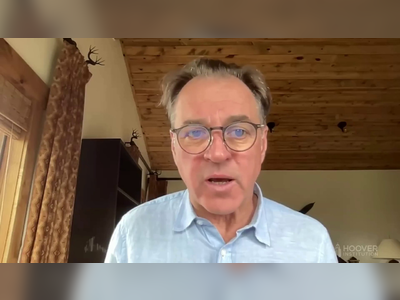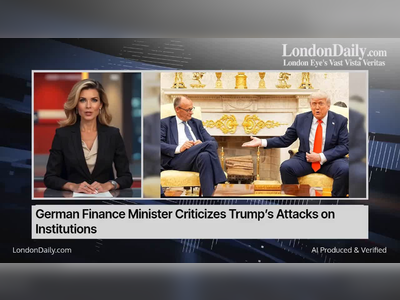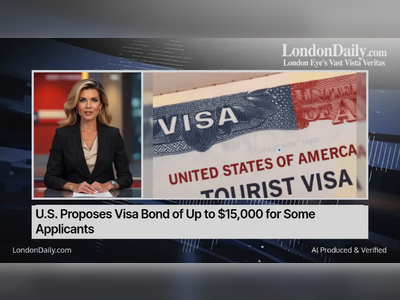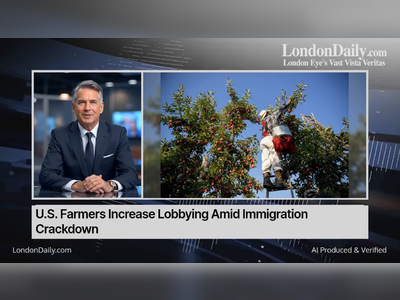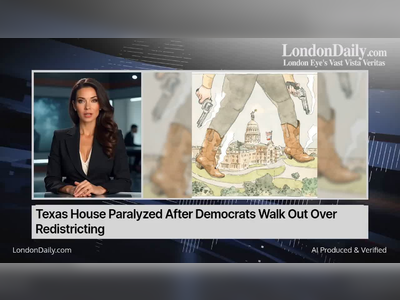Trump Accuses Major Banks of Politically Motivated Account Denials and Prepares Executive Order
Trump claims JPMorgan Chase and Bank of America refused his business and supporters; White House readies order to probe politically biased banking practices
Former U.S. President Donald Trump has accused two of the nation’s largest banks—JPMorgan Chase and Bank of America—of refusing to service him and his supporters on ideological grounds.
He stated that JPMorgan informed him that it would close his accounts within 20 days despite a decades-long relationship, and that Bank of America declined to open a proposed deposit exceeding $1 billion.
He said the alleged refusals forced him to seek smaller banks for his funds.
Trump offered no evidence to substantiate the claims.
Trump also alleged that a political motive under President Biden’s administration influenced banking regulators, pressuring financial institutions to reject conservative-aligned customers.
Both JPMorgan and Bank of America have stated that they do not close accounts for political reasons and emphasized compliance with regulatory and anti-discrimination obligations.
These remarks followed a Wall Street Journal report indicating that the Trump administration is preparing an executive order to address so-called “politicized or unlawful debanking.” The draft order would instruct federal regulators—such as the Federal Reserve, the CFPB, and the DOJ—to investigate banks for potential violations of the Equal Credit Opportunity Act, consumer finance and antitrust laws.
It could authorize fines, consent decrees, and other enforcement actions.
The order also mandates a review of lending policies and directives that could result in ideological exclusion.
Earlier this year, Trump addressed the issue at the World Economic Forum, calling on major banks to “open your banks to conservatives.” He singled out Bank of America and JPMorgan for alleged refusal to serve conservative customers, remarks delivered without corroborating documentation.
In response, Bank of America noted it serves over 70 million clients and denies using political litmus tests in account decisions.
Separately, data shows that consumer complaints about bank account closures or service denials surged between 2019 and 2024.
Though relatively few accounts were closed, critics of the current regulatory environment assert that risk-based compliance protocols—especially “reputational risk”—have contributed to cautious behavior by banks.
Supporters of the executive order point to this as evidence of excessive regulatory pressure.
JPMorgan’s stock fell by approximately 1.7% on the day of Trump’s statements, and Bank of America’s shares declined by roughly 1.1%.
The broader banking sector saw modest declines, including a 0.8% drop in the KBW Nasdaq Bank Index.
Analysts report that the Federal Reserve recently removed “reputational risk” as a supervisory criterion, a move seen as easing restrictions that had made banks cautious in servicing politically exposed or high-risk sectors.
Trump’s executive order is also expected to tighten White House oversight over independent agencies involved in enforcement and rulemaking.
In response to mounting scrutiny, some of the country’s largest banks are reportedly reviewing or amending public-facing policies related to diversity, equity and inclusion in light of Trump-era executive orders rescinding many DEI directives.
The Department of Justice has already established a task force to examine alleged discriminatory banking practices and credit denials, and congressional committees in both the Senate and House have announced plans for hearings on the issue.
He stated that JPMorgan informed him that it would close his accounts within 20 days despite a decades-long relationship, and that Bank of America declined to open a proposed deposit exceeding $1 billion.
He said the alleged refusals forced him to seek smaller banks for his funds.
Trump offered no evidence to substantiate the claims.
Trump also alleged that a political motive under President Biden’s administration influenced banking regulators, pressuring financial institutions to reject conservative-aligned customers.
Both JPMorgan and Bank of America have stated that they do not close accounts for political reasons and emphasized compliance with regulatory and anti-discrimination obligations.
These remarks followed a Wall Street Journal report indicating that the Trump administration is preparing an executive order to address so-called “politicized or unlawful debanking.” The draft order would instruct federal regulators—such as the Federal Reserve, the CFPB, and the DOJ—to investigate banks for potential violations of the Equal Credit Opportunity Act, consumer finance and antitrust laws.
It could authorize fines, consent decrees, and other enforcement actions.
The order also mandates a review of lending policies and directives that could result in ideological exclusion.
Earlier this year, Trump addressed the issue at the World Economic Forum, calling on major banks to “open your banks to conservatives.” He singled out Bank of America and JPMorgan for alleged refusal to serve conservative customers, remarks delivered without corroborating documentation.
In response, Bank of America noted it serves over 70 million clients and denies using political litmus tests in account decisions.
Separately, data shows that consumer complaints about bank account closures or service denials surged between 2019 and 2024.
Though relatively few accounts were closed, critics of the current regulatory environment assert that risk-based compliance protocols—especially “reputational risk”—have contributed to cautious behavior by banks.
Supporters of the executive order point to this as evidence of excessive regulatory pressure.
JPMorgan’s stock fell by approximately 1.7% on the day of Trump’s statements, and Bank of America’s shares declined by roughly 1.1%.
The broader banking sector saw modest declines, including a 0.8% drop in the KBW Nasdaq Bank Index.
Analysts report that the Federal Reserve recently removed “reputational risk” as a supervisory criterion, a move seen as easing restrictions that had made banks cautious in servicing politically exposed or high-risk sectors.
Trump’s executive order is also expected to tighten White House oversight over independent agencies involved in enforcement and rulemaking.
In response to mounting scrutiny, some of the country’s largest banks are reportedly reviewing or amending public-facing policies related to diversity, equity and inclusion in light of Trump-era executive orders rescinding many DEI directives.
The Department of Justice has already established a task force to examine alleged discriminatory banking practices and credit denials, and congressional committees in both the Senate and House have announced plans for hearings on the issue.


